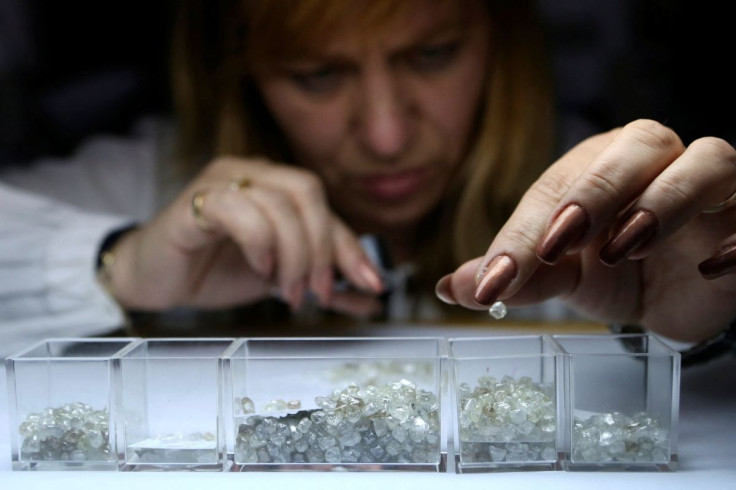U.S. Boycotts Conflict Diamond Meetings Chaired By Russia

The United States and Britain are boycotting some Kimberley Process meetings because they are chaired by Russia, in a sign of how geopolitical rifts due to Russia's invasion of Ukraine are affecting international diamond certification efforts.
The Kimberley Process, set up in 2003, is an 85-nation body that certifies rough diamond exports and monitors members' implementation of requirements aimed at stemming the flow of conflict diamonds.
The division risks causing stagnation at the Kimberley Process, undermining efforts to ensure better controls against conflict diamonds.
The United States last week banned the import of Russian diamonds as part of sweeping economic sanctions on the country.
But the European Union - home to major diamond trading hub Antwerp - has not so far banned imports of Russian diamonds, although it did on Tuesday ban EU companies from exporting luxury goods worth more than 300 euros to Russia, including rough and polished diamonds.
Britain has not banned Russian diamond imports either.
In separate emails seen by Reuters, the British and U.S. delegates to the Kimberley Process said they will not be attending meetings of two committees chaired by Russia.
"While the United States remains fully committed to continuing its active role in the KP, due to Russia's actions, we currently are not participating in the upcoming meetings of the Committee on Participation and Chairmanship and the Committee on Rules and Procedures," acting U.S. Kimberley Process focal point George Cajati said in an email to committee members on March 9.
Russia's Kimberley Process representative sent what they called a "point-blank response" to the boycotts on Thursday.
"We will not give in to provocations and connive at discussing within the Kimberley Process a critical international issue, which is beyond the scope of the Kimberley Process," the Russian statement, seen by Reuters, said.
"Irresponsible attempts to forcedly politicize the activities of the Kimberley Process jeopardize the achievements of the KP, threaten the implementation of its current agenda and run against the interests of the diamond industry."
The Kimberley Process Civil Society Coalition, a group of non-governmental organisations that has observer status at the KP, has called on https://www.kpcivilsociety.org/press/kp-csc-calls-for-kimberley-process-meeting-on-russian-invasion-and-links-with-diamond-trade governments and industry to ensure diamonds produced in Russia or by Alrosa do not contribute to financing the conflict in Ukraine.
The Coalition asked Botswana, this year's Kimberley Process chair, to call a plenary meeting on the matter.
Alrosa did not immediately respond to a request for comment.
Botswana did not immediately respond to a request for comment.
© Copyright Thomson Reuters 2024. All rights reserved.





















